外研版九年级下册Module 1 Travel Unit 1 We toured the city by bus and by tax i课件 (共49张PPT)
文档属性
| 名称 | 外研版九年级下册Module 1 Travel Unit 1 We toured the city by bus and by tax i课件 (共49张PPT) |
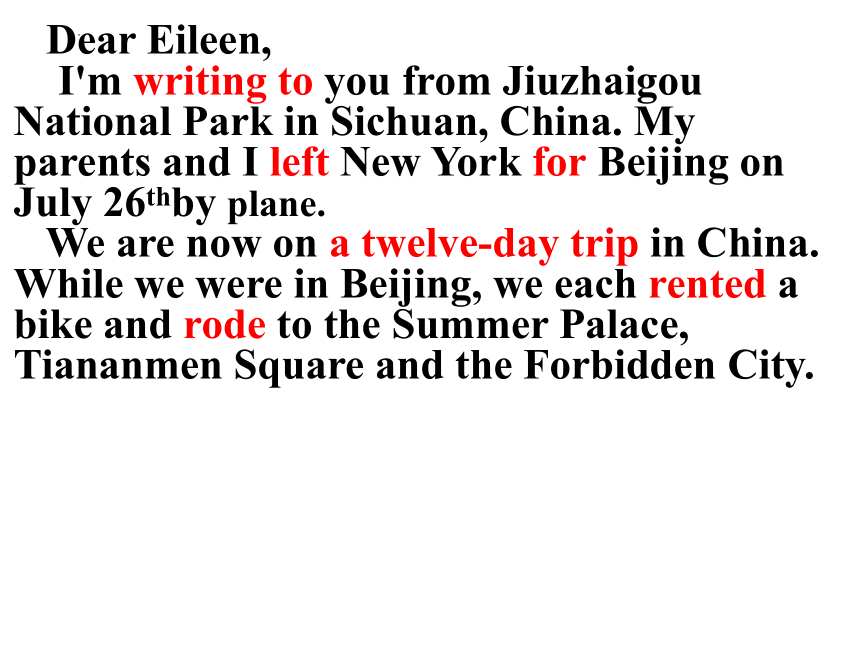
|
|
| 格式 | pptx | ||
| 文件大小 | 2.0MB | ||
| 资源类型 | 教案 | ||
| 版本资源 | 外研版 | ||
| 科目 | 英语 | ||
| 更新时间 | 2024-10-02 00:00:00 | ||
图片预览


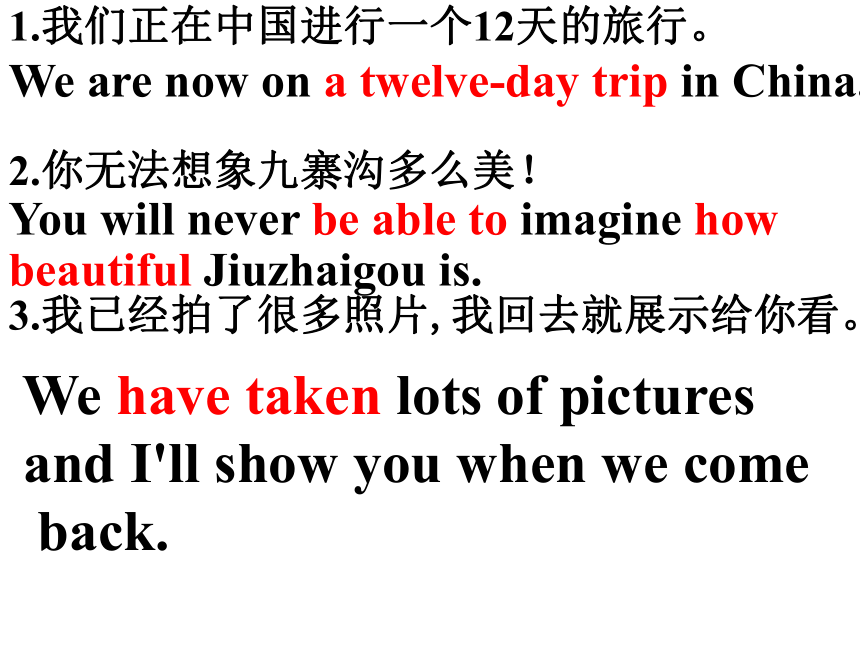
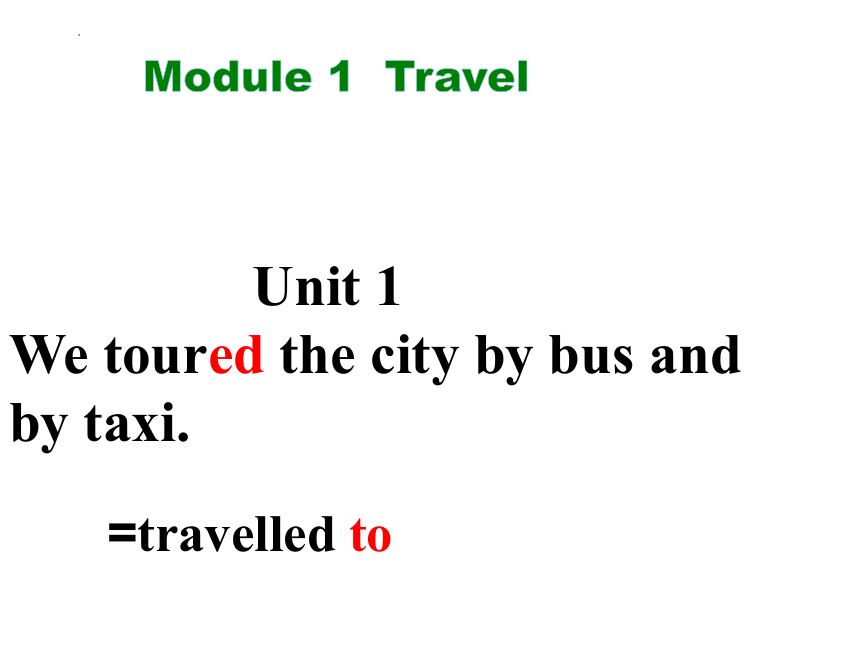
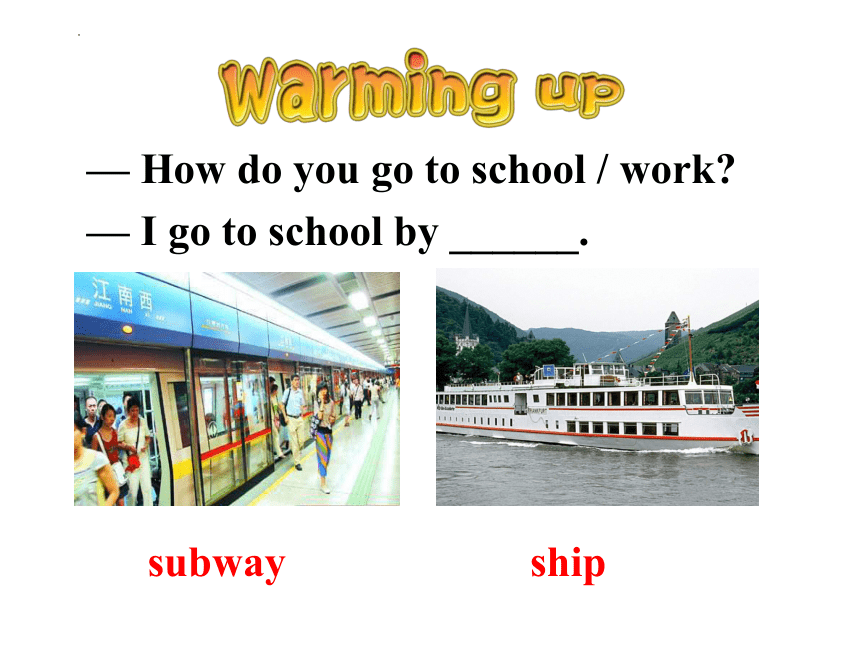
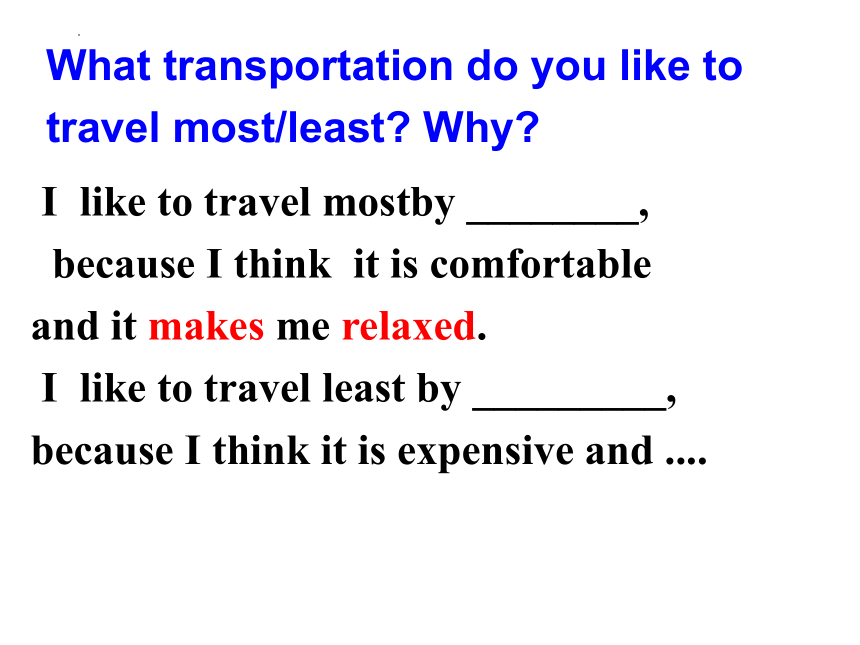
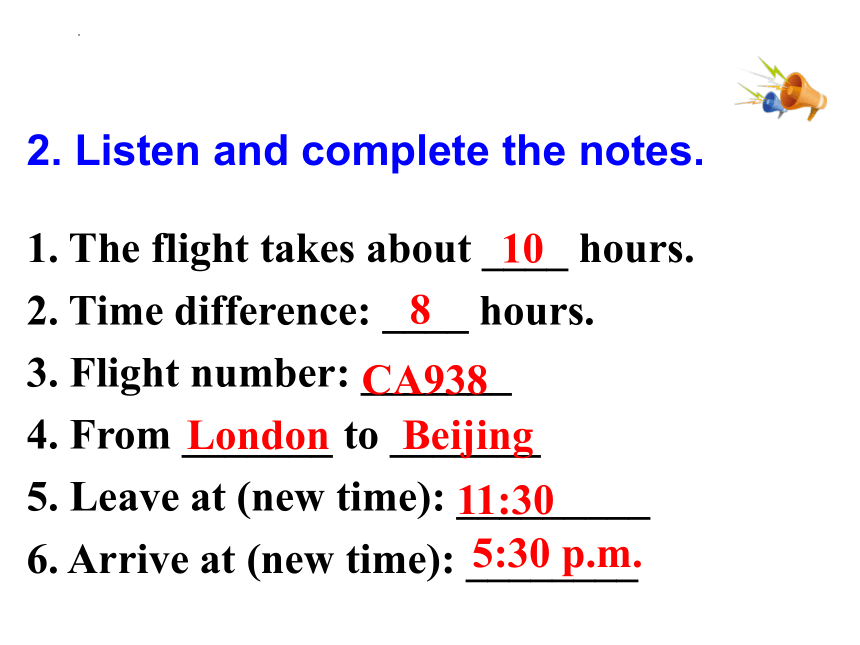


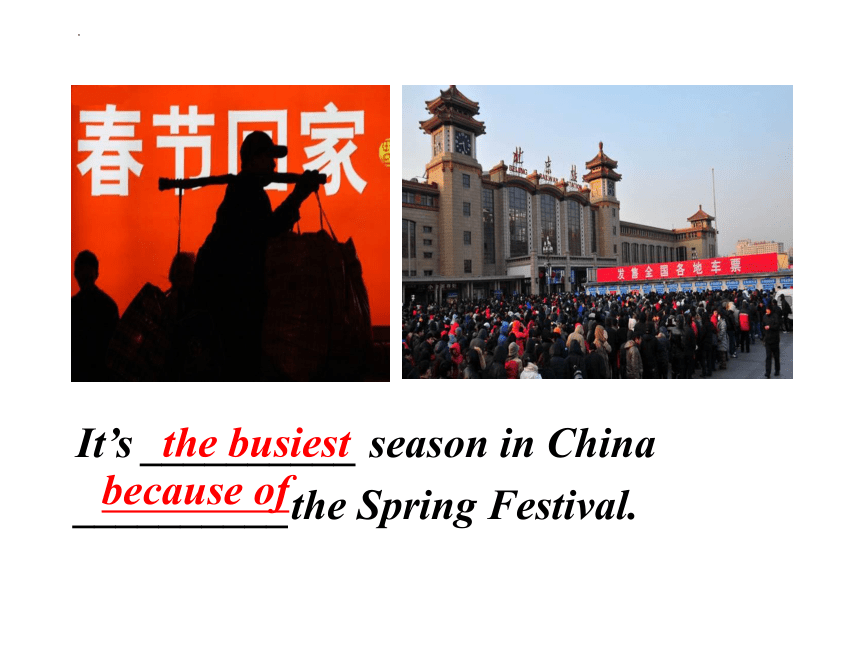


文档简介
(共49张PPT)
Dear Eileen,
I'm writing to you from Jiuzhaigou National Park in Sichuan, China. My parents and I left New York for Beijing on July 26thby plane.
We are now on a twelve-day trip in China. While we were in Beijing, we each rented a bike and rode to the Summer Palace, Tiananmen Square and the Forbidden City.
We also climbed the Great Wall. You will never be able to imagine how beautiful Jiuzhaigou is.We have taken lots of pictures and I'll show you when we come back. By the way, I've bought some souvenirs(纪念品) for you and I hope you’ll like them.
Best wishes.
Julia
1.我们正在中国进行一个12天的旅行。
2.你无法想象九寨沟多么美!
3.我已经拍了很多照片,我回去就展示给你看。
We are now on a twelve-day trip in China.
You will never be able to imagine how beautiful Jiuzhaigou is.
We have taken lots of pictures
and I'll show you when we come
back.
Module 1 Travel
Unit 1
We toured the city by bus and by taxi.
=travelled to
— How do you go to school / work
— I go to school by ______.
subway
ship
I like to travel mostby ________,
because I think it is comfortable and it makes me relaxed.
I like to travel least by _________,
because I think it is expensive and ....
What transportation do you like to travel most/least Why
1. The flight takes about ____ hours.
2. Time difference: ____ hours.
3. Flight number: _______
4. From _______ to _______
5. Leave at (new time): _________
6. Arrive at (new time): ________
2. Listen and complete the notes.
10
8
CA938
London
Beijing
11:30
5:30 p.m.
Lingling,Daming and Betty are talking
about their holiday activities.
Read along with the tape
and fill in the blanks.
Lingling went to see her grandparents in Henan province ___________. The train ________people, and she had to stand for over three hours.
by train
was full of
It’s __________ season in China __________the Spring Festival.
the busiest
because of
Tony went to stay with his family in the UK. He 's _________ back today.
flying
Daming _________Hong Kong – and the plane left a bit late too! He ____________
Lantau Island and went to Disneyland.
flew direct to
took a boat to
Betty toured the city________ and ______ She took a tour ________ to the Summer Palace and went for a long walk around the lake.
by bus
by taxi.
by coach
1. When do you think the conversation
takes place
2. According to Lingling, why is travel
so difficult in winter
3. What are Daming and Betty looking
forward to at the end of the term
Answer the questions.
1. When do you think the conversation
takes place
When they get back to school after the winter holidays./At the beginning of the term.
Answer the questions.
2. According to Lingling, why is travel
so difficult in winter
They are looking forward to the school-leavers’ party at the end of the term.
3. What are Daming and Betty looking
forward to at the end of the term
It’s the busiest season in China because of the Spring Festival.
Everyday English
Not bad!
It was great fun!
How about you
We’d better get back to work.
We’ll have a great time!
不坏;还行。
太好了;很开心。
你呢?
我们最好回去工作。
我们将玩的很开心。
Self-learning
Do Activity3 and 5.
Holiday Activities
Lingling went to see her grandparents in Henan Province by train.
Tony
Daming
Betty
went to stay with his family in the UK.
flew to Hongkong, and took a boat to Lantau Island and went to Disneyland.
had a good time in Beijing, toured the city by bus and taxi,took a tour by coach to Summer Palace and went for a long walk around the lake.
5. Choose the correct answer.
direct exactly pilot succeed
1. When you fly direct, you ______.
a) arrive without stopping at another
place
b) stop at another place before you
arrive
2. When you say “Exactly”, it means ___.
a) you do not agree
b) you completely agree
3. The pilot of plane ______ .
a) flies it
b) gives you food and drink during
the flight
4. If you succeed in doing something,
you ______.
a) manage to do it b) nearly do it
1.欢迎回来_____________
2. 充满…_____________
3. 真倒霉_____________
4.成功地做…______________
5. 在…末__________
6. 只要_____________
7. 毕业生晚会_______________
8.盼望做某事_______________
bad luck
be full of =be filled with
welcome back
succeed in doing sth
at the end of
as long as
the school-leavers’ party
look forward to doing
翻译下列句子。
1.欢迎回到中国。
__________
2. 书包里装满了书。
__________
3.每年六月有一次毕业生晚会。
There’s the __________ ________ in June.
Welcome back to China.
The bag is full of books.
The bag is filled with books.
school-leavers’ party
4.他成功地解出了这道数学题。
He ________ ______ _______ _______ the
maths problem.
5. 只要你努力,你迟早会取得好成绩。
_____ ______ _____ you study hard, you
_____ _____ good grades sooner or later.
6.公共汽车上满是人,我不得不站了一个多
小时。
The bus _____ ______ _____ people, I had
to stand _____ _____ one hour.
succeeded in working out
As long as
will get
was full of
was filled with
for over
7.我们将在本学期结束的时候举行一次家长
会。
We ______ _______ _____ ________ _______
_____ ______ _______ ______this term.
8. 我期望收到你的来信。
I’m ________ _________ __ ______ ______
you.
will hold a parents’ meeting
at the end of
looking forward to hearing from
Grammar
名词
名词有可数与不可数之分,有数和所有格的变化,在句中可以作主语、宾语、宾语补足语、表语、同位语等。
1. 可数名词与不可数名词
很多情况下,我们可以依靠常识(即用
数数的办法)来判断英语名词是否可数。
比如,book, table 都是可数名词而water是不可数名词。一般来说,在英语中物质名词和抽象名词都是不可数名词,如flour, rice, beauty, pleasure, money等。
学习名词必须区分其是否可数。只有可数名词前才可以使用数词和不定冠词。值得注意的是,有时同一个单词所指不同,其数的概念也就不同。
例如,paper作 “纸” 解时为不可数名词,表示 “报纸” 和 “试卷” 时是可数名词;fish 指 “鱼肉” 时是不可数名词,表示“鱼”时是可数名词,只不过通常是单复数同形;coffee做 “咖啡” 解时是不可数名词,表示 “一杯咖啡” 时是可数名词。
2. 名词的数
对于可数名词数的变化,一要掌握
规则变化,即名词后面加-s或者-es
的情况;二要掌握不规则变化,包括
man-men, woman-women, foot-feet,
tooth-teeth, mouse-mice, child-
children等;三要掌握单复数同形的单
词,如sheep等。除此之外,还应注意
以下几点:
I.可数名词变复数
1.规则变化(1)一般在词尾加 s如
book—books, boy—boys
(2)以s, x, sh, ch结尾的名词加 es ( 但stomach在词尾加 s)。 如: bus—buses, watch—watches
(3)以辅音字母+y结尾的名词,变y为i, 再加 es。如: factory—factories, party—parties
(4)以o结尾的名词,除有生命的“两人两物(Negro, hero, tomato, potato,volcano )”在后面加 es外,(特例:kangroos,mangos/mangoes)一般在后面直接加 s。如:zoo—zoos, radio—radios, piano—pianos(5)以th结尾的多数加s,mouths,months
(6)以f或fe结尾的词,变f或fe为v, 再加 es。 如: knife—knives, shelf—shelves, thief—thieves
2.不规则变化
(1)单、复数同形的词。如:
sheep, fish, Chinese, Japanese,deer
(2)词干发生变化的词。如:
foot—feet, tooth—teeth,
child—children, mouse—mice,
goose—geese
II. 在一般情况下,复合名词的单复数
形式体现在最后一个名词上,如a
pencil box–pencil boxes, a girl
student–girl students。但是如果是
由man或woman构成的复合名词,
如a man doctor, a woman teacher,
其复数形式则为men doctors,
women teachers。
III. 有些名词往往以复数形式出现,如
trousers, glasses(眼镜),在表示数量
时需要借助量词,如a pair of
trousers, three pairs of trousers。
IV. 有些名词表示复数概念,往往作为
一个整体看待,如police, people。
这些单词没有复数形式,但是其后
面的谓语动词却多为复数形式。
例如:The police have caught the thief. Many people have seen the film. 如果要表达单个数量只能换用其他单词。例如:“一名警察” 是a policeman /policeman,“一个人” 可以是a person, a man, a woman等。不过要注意,people作 “民族,种族” 解时,是可数名词,复数形式是peoples。
3. 名词的所有格
名词的所有格一般采用名词后加’s的
形式,如a child’s dream, someone’s
bag;以- s结尾的复数名词的所有格
直接加 ’即可,如the boys’ schoolbags。
所有格表示的是所属关系,采用’s结
构的多为有生命的名词。如果是无生
命的名词,多采用 “of+名词” 的方式
表达。例如:
the window of the house 房子的窗户
the end of the year 年末
the gate of our school 我们学校的大门
注意:双重所有格
双重所有格指同时使用's 所有格和of 所有格。a friend of my father’s 与my father’s friend的含义不同,前者含有“我父亲有不止一个朋友”的意思,而后者没有这一含义。
我的一个朋友 a friend of mine
4. 名词的句法功能
名词的句法功能指名词可以充当的句
子成分,常见的有:
(1)主语
The flight takes about thirteen hours.
航程需要大约13个小时。
Mr Wang teaches us English.
王老师教我们英语。
(2)宾语
Many people were helping the old
man when I passed.
我路过的时候,许多人在帮助这位老人。
He has become very interested in chess recently.
最近他对国际象棋产生了很大的兴趣。
(3) 宾语补足语
We all call him Xiao Li.
我们都叫他小李。
(4) 表语
My younger brother is a policeman.
我弟弟是警察。
名词还可以用作同位语、呼语等。如:Mr Wang, my neighbour, has bought a new car.
我的邻居王先生买了辆新车。(my neighbour是Mr Wang的同位语)
Tom, come and play games with us.
汤姆,来和我们玩游戏吧。(是呼语)
中考链接
1.–Is the schoolbag under the desk
yours
–No, it’s my ______. He left it there
just now.
A. brother
B. brother’s
C. brothers’
2. –After P.E., I often feel very thirsty.
–Why not buy some _____ to drink
A. bread B. noodles
C. apple juice D. teas
3. –What a good ______ you’ve given
me! Thanks a lot.
–My pleasure.
A. information B. news
C. suggestion D. advice
( )1. —Excuse me, how can I get to the nearest bus stop
—Go down this road. It's about________ walk.
A.five minute's B.five minutes'
C.five minutes D.five minute
B
( )2. I'm so hungry. Please give me ______ to eat.
A.three bread
B.three pieces of bread
C.three pieces of breads
D.three piece of bread
B
3. There are lots of __down there
but I can hardly see any___.
A.sheep; peoples
B.sheeps; people
C.sheep; people
D.sheeps; peoples
C
Class Test
Thank you!
Dear Eileen,
I'm writing to you from Jiuzhaigou National Park in Sichuan, China. My parents and I left New York for Beijing on July 26thby plane.
We are now on a twelve-day trip in China. While we were in Beijing, we each rented a bike and rode to the Summer Palace, Tiananmen Square and the Forbidden City.
We also climbed the Great Wall. You will never be able to imagine how beautiful Jiuzhaigou is.We have taken lots of pictures and I'll show you when we come back. By the way, I've bought some souvenirs(纪念品) for you and I hope you’ll like them.
Best wishes.
Julia
1.我们正在中国进行一个12天的旅行。
2.你无法想象九寨沟多么美!
3.我已经拍了很多照片,我回去就展示给你看。
We are now on a twelve-day trip in China.
You will never be able to imagine how beautiful Jiuzhaigou is.
We have taken lots of pictures
and I'll show you when we come
back.
Module 1 Travel
Unit 1
We toured the city by bus and by taxi.
=travelled to
— How do you go to school / work
— I go to school by ______.
subway
ship
I like to travel mostby ________,
because I think it is comfortable and it makes me relaxed.
I like to travel least by _________,
because I think it is expensive and ....
What transportation do you like to travel most/least Why
1. The flight takes about ____ hours.
2. Time difference: ____ hours.
3. Flight number: _______
4. From _______ to _______
5. Leave at (new time): _________
6. Arrive at (new time): ________
2. Listen and complete the notes.
10
8
CA938
London
Beijing
11:30
5:30 p.m.
Lingling,Daming and Betty are talking
about their holiday activities.
Read along with the tape
and fill in the blanks.
Lingling went to see her grandparents in Henan province ___________. The train ________people, and she had to stand for over three hours.
by train
was full of
It’s __________ season in China __________the Spring Festival.
the busiest
because of
Tony went to stay with his family in the UK. He 's _________ back today.
flying
Daming _________Hong Kong – and the plane left a bit late too! He ____________
Lantau Island and went to Disneyland.
flew direct to
took a boat to
Betty toured the city________ and ______ She took a tour ________ to the Summer Palace and went for a long walk around the lake.
by bus
by taxi.
by coach
1. When do you think the conversation
takes place
2. According to Lingling, why is travel
so difficult in winter
3. What are Daming and Betty looking
forward to at the end of the term
Answer the questions.
1. When do you think the conversation
takes place
When they get back to school after the winter holidays./At the beginning of the term.
Answer the questions.
2. According to Lingling, why is travel
so difficult in winter
They are looking forward to the school-leavers’ party at the end of the term.
3. What are Daming and Betty looking
forward to at the end of the term
It’s the busiest season in China because of the Spring Festival.
Everyday English
Not bad!
It was great fun!
How about you
We’d better get back to work.
We’ll have a great time!
不坏;还行。
太好了;很开心。
你呢?
我们最好回去工作。
我们将玩的很开心。
Self-learning
Do Activity3 and 5.
Holiday Activities
Lingling went to see her grandparents in Henan Province by train.
Tony
Daming
Betty
went to stay with his family in the UK.
flew to Hongkong, and took a boat to Lantau Island and went to Disneyland.
had a good time in Beijing, toured the city by bus and taxi,took a tour by coach to Summer Palace and went for a long walk around the lake.
5. Choose the correct answer.
direct exactly pilot succeed
1. When you fly direct, you ______.
a) arrive without stopping at another
place
b) stop at another place before you
arrive
2. When you say “Exactly”, it means ___.
a) you do not agree
b) you completely agree
3. The pilot of plane ______ .
a) flies it
b) gives you food and drink during
the flight
4. If you succeed in doing something,
you ______.
a) manage to do it b) nearly do it
1.欢迎回来_____________
2. 充满…_____________
3. 真倒霉_____________
4.成功地做…______________
5. 在…末__________
6. 只要_____________
7. 毕业生晚会_______________
8.盼望做某事_______________
bad luck
be full of =be filled with
welcome back
succeed in doing sth
at the end of
as long as
the school-leavers’ party
look forward to doing
翻译下列句子。
1.欢迎回到中国。
__________
2. 书包里装满了书。
__________
3.每年六月有一次毕业生晚会。
There’s the __________ ________ in June.
Welcome back to China.
The bag is full of books.
The bag is filled with books.
school-leavers’ party
4.他成功地解出了这道数学题。
He ________ ______ _______ _______ the
maths problem.
5. 只要你努力,你迟早会取得好成绩。
_____ ______ _____ you study hard, you
_____ _____ good grades sooner or later.
6.公共汽车上满是人,我不得不站了一个多
小时。
The bus _____ ______ _____ people, I had
to stand _____ _____ one hour.
succeeded in working out
As long as
will get
was full of
was filled with
for over
7.我们将在本学期结束的时候举行一次家长
会。
We ______ _______ _____ ________ _______
_____ ______ _______ ______this term.
8. 我期望收到你的来信。
I’m ________ _________ __ ______ ______
you.
will hold a parents’ meeting
at the end of
looking forward to hearing from
Grammar
名词
名词有可数与不可数之分,有数和所有格的变化,在句中可以作主语、宾语、宾语补足语、表语、同位语等。
1. 可数名词与不可数名词
很多情况下,我们可以依靠常识(即用
数数的办法)来判断英语名词是否可数。
比如,book, table 都是可数名词而water是不可数名词。一般来说,在英语中物质名词和抽象名词都是不可数名词,如flour, rice, beauty, pleasure, money等。
学习名词必须区分其是否可数。只有可数名词前才可以使用数词和不定冠词。值得注意的是,有时同一个单词所指不同,其数的概念也就不同。
例如,paper作 “纸” 解时为不可数名词,表示 “报纸” 和 “试卷” 时是可数名词;fish 指 “鱼肉” 时是不可数名词,表示“鱼”时是可数名词,只不过通常是单复数同形;coffee做 “咖啡” 解时是不可数名词,表示 “一杯咖啡” 时是可数名词。
2. 名词的数
对于可数名词数的变化,一要掌握
规则变化,即名词后面加-s或者-es
的情况;二要掌握不规则变化,包括
man-men, woman-women, foot-feet,
tooth-teeth, mouse-mice, child-
children等;三要掌握单复数同形的单
词,如sheep等。除此之外,还应注意
以下几点:
I.可数名词变复数
1.规则变化(1)一般在词尾加 s如
book—books, boy—boys
(2)以s, x, sh, ch结尾的名词加 es ( 但stomach在词尾加 s)。 如: bus—buses, watch—watches
(3)以辅音字母+y结尾的名词,变y为i, 再加 es。如: factory—factories, party—parties
(4)以o结尾的名词,除有生命的“两人两物(Negro, hero, tomato, potato,volcano )”在后面加 es外,(特例:kangroos,mangos/mangoes)一般在后面直接加 s。如:zoo—zoos, radio—radios, piano—pianos(5)以th结尾的多数加s,mouths,months
(6)以f或fe结尾的词,变f或fe为v, 再加 es。 如: knife—knives, shelf—shelves, thief—thieves
2.不规则变化
(1)单、复数同形的词。如:
sheep, fish, Chinese, Japanese,deer
(2)词干发生变化的词。如:
foot—feet, tooth—teeth,
child—children, mouse—mice,
goose—geese
II. 在一般情况下,复合名词的单复数
形式体现在最后一个名词上,如a
pencil box–pencil boxes, a girl
student–girl students。但是如果是
由man或woman构成的复合名词,
如a man doctor, a woman teacher,
其复数形式则为men doctors,
women teachers。
III. 有些名词往往以复数形式出现,如
trousers, glasses(眼镜),在表示数量
时需要借助量词,如a pair of
trousers, three pairs of trousers。
IV. 有些名词表示复数概念,往往作为
一个整体看待,如police, people。
这些单词没有复数形式,但是其后
面的谓语动词却多为复数形式。
例如:The police have caught the thief. Many people have seen the film. 如果要表达单个数量只能换用其他单词。例如:“一名警察” 是a policeman /policeman,“一个人” 可以是a person, a man, a woman等。不过要注意,people作 “民族,种族” 解时,是可数名词,复数形式是peoples。
3. 名词的所有格
名词的所有格一般采用名词后加’s的
形式,如a child’s dream, someone’s
bag;以- s结尾的复数名词的所有格
直接加 ’即可,如the boys’ schoolbags。
所有格表示的是所属关系,采用’s结
构的多为有生命的名词。如果是无生
命的名词,多采用 “of+名词” 的方式
表达。例如:
the window of the house 房子的窗户
the end of the year 年末
the gate of our school 我们学校的大门
注意:双重所有格
双重所有格指同时使用's 所有格和of 所有格。a friend of my father’s 与my father’s friend的含义不同,前者含有“我父亲有不止一个朋友”的意思,而后者没有这一含义。
我的一个朋友 a friend of mine
4. 名词的句法功能
名词的句法功能指名词可以充当的句
子成分,常见的有:
(1)主语
The flight takes about thirteen hours.
航程需要大约13个小时。
Mr Wang teaches us English.
王老师教我们英语。
(2)宾语
Many people were helping the old
man when I passed.
我路过的时候,许多人在帮助这位老人。
He has become very interested in chess recently.
最近他对国际象棋产生了很大的兴趣。
(3) 宾语补足语
We all call him Xiao Li.
我们都叫他小李。
(4) 表语
My younger brother is a policeman.
我弟弟是警察。
名词还可以用作同位语、呼语等。如:Mr Wang, my neighbour, has bought a new car.
我的邻居王先生买了辆新车。(my neighbour是Mr Wang的同位语)
Tom, come and play games with us.
汤姆,来和我们玩游戏吧。(是呼语)
中考链接
1.–Is the schoolbag under the desk
yours
–No, it’s my ______. He left it there
just now.
A. brother
B. brother’s
C. brothers’
2. –After P.E., I often feel very thirsty.
–Why not buy some _____ to drink
A. bread B. noodles
C. apple juice D. teas
3. –What a good ______ you’ve given
me! Thanks a lot.
–My pleasure.
A. information B. news
C. suggestion D. advice
( )1. —Excuse me, how can I get to the nearest bus stop
—Go down this road. It's about________ walk.
A.five minute's B.five minutes'
C.five minutes D.five minute
B
( )2. I'm so hungry. Please give me ______ to eat.
A.three bread
B.three pieces of bread
C.three pieces of breads
D.three piece of bread
B
3. There are lots of __down there
but I can hardly see any___.
A.sheep; peoples
B.sheeps; people
C.sheep; people
D.sheeps; peoples
C
Class Test
Thank you!
同课章节目录
- Module 1 Travel
- Unit 1 We toured the city by bus and by taxi
- Unit 2 It's a long story.
- Unit 3 Language in use
- Module 2 Education
- Unit 1 They don't sit in rows.
- Unit 2 What do I like best about school?
- Unit 3 Language in use
- Module 3 Life now and then
- Unit 1 They sometimes work harder.
- Unit 2 I think life is better today.
- Unit 3 Language in use.
- Module 4 Rules and suggestions
- Unit 1 You must be careful of falling stones.
- Unit 2 we must keep the camp clean.
- Unit 3 Language in use.
- Revison A
- Module 5 Look after yourself
- Unit 1 We'd better get you to hospital.
- Unit 2 Get off the sofa!
- Unit 3 Language in use.
- Module 6 Eating togethe
- Unit 1 When is the school-leavers' party?
- Unit 2 Knives and forks are used for most Western
- Unit 3 Language in use
- Module 7 English for you and me
- Unit 1 Have you ever been to an English corner?
- Unit 2 We all own English.
- Unit 3 Language in use
- Module 8 My future life
- Unit 1 Here's to our friendship and the future
- Unit 2 I know that you will be better at maths.
- Unit 3 Language in use
- Revison B
